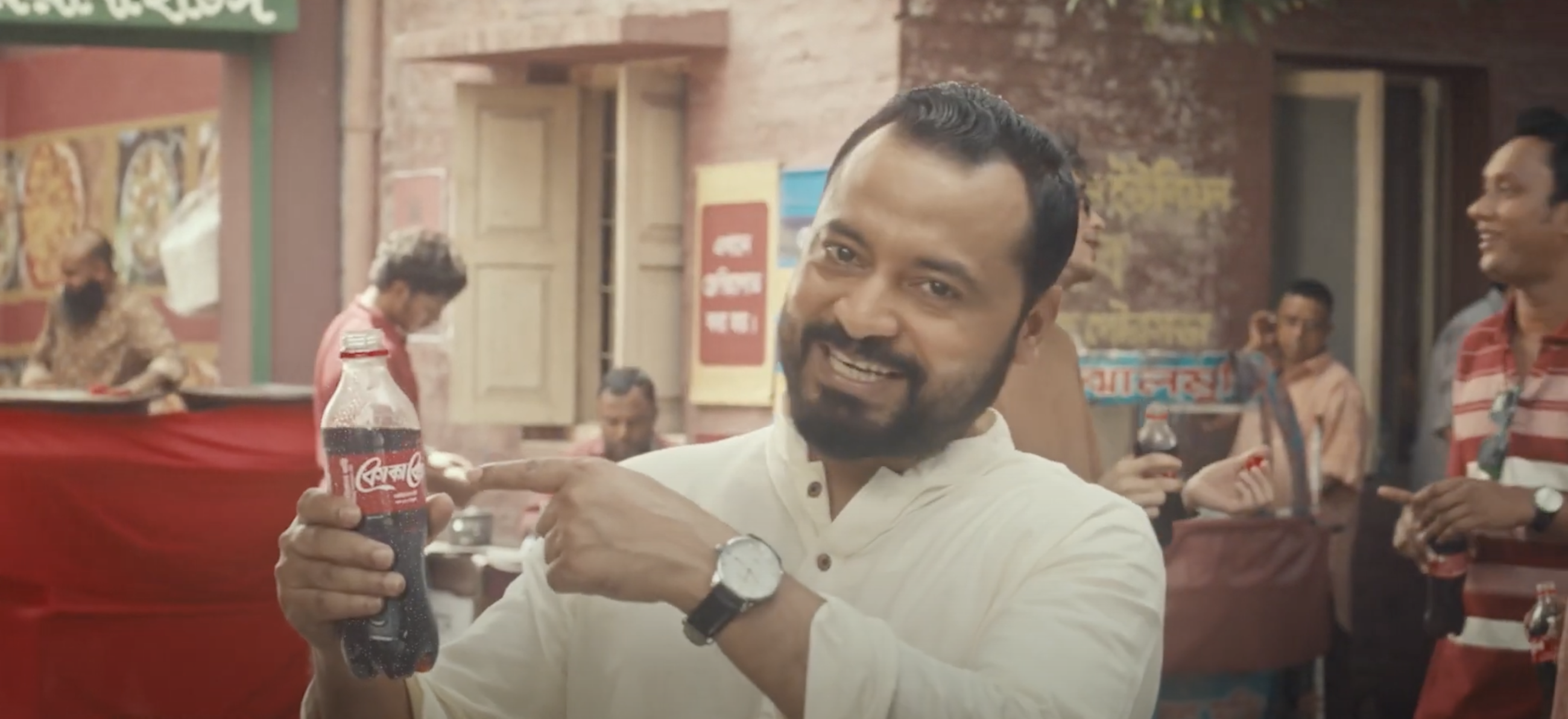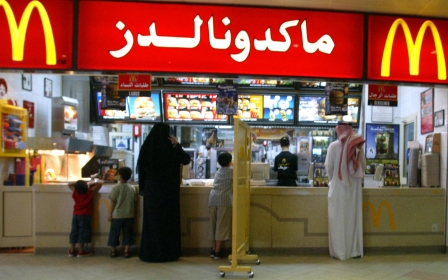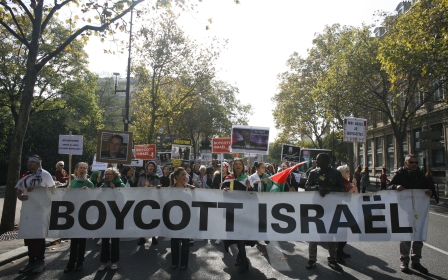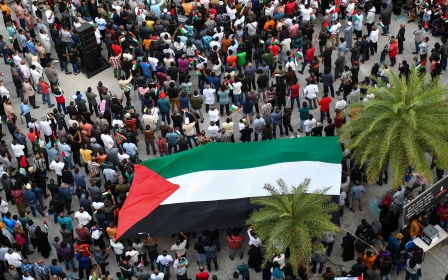Bangladesh: Coca-Cola ad denying ties to Israel sparks backlash

A Coca-Cola advert aimed at distancing the company from perceived ties with Israel has gained widespread criticism in Bangladesh amid the ongoing war on Gaza.
The 60-second commercial, which was broadcast on TV and social media on 9 June, but removed from Coca-Cola Bangladesh's official YouTube and Instagram accounts, was aimed at countering a months-long boycott of its drinks by millions of Bangladeshis.
The ad, which debuted during a highly anticipated Pakistan-India T20 World Cup cricket match, opens with a scene in a market on a hot day.
A young man named Sohail approaches a middle-aged shopkeeper he calls Bablu bhai. The shopkeeper, offers Sohail a bottle of Coke, which he refuses, saying: "No Bablu bhai, I am not drinking this stuff any more."
When the shopkeeper asks why, Sohail replies: "This stuff is from 'that place'." He does not name the "place" but it appears that he is referring to Israel.
New MEE newsletter: Jerusalem Dispatch
Sign up to get the latest insights and analysis on Israel-Palestine, alongside Turkey Unpacked and other MEE newsletters
Bablu then attempts to reassure Sohail and his friends that Coca-Cola is not an Israeli product, highlighting its global presence in 190 countries over 138 years, including Turkey, Spain, Dubai and Palestine.
"Even Palestine has a Coke factory," the ad claims.
However, the ad's suggestion that "even Palestine has a Coke factory" was met with fierce backlash, with social media users calling out the company for "misleading" consumers.
Supporters of the Palestinian cause who boycott Coca-Cola said the company operates a factory in Atarot, an Israeli settlement in the occupied West Bank, considered illegal under international law.
Lmao the coca cola boycott worked so hard in Bangladesh
— Watty the Marie Biscuit 🍪 (@mariebiscuitsz) June 10, 2024
• First they dropped the price
• Then gave a free bottle with every purchase
• Now they’ve made a whole ad claiming Coca Cola has a factory in Gaza 🙃
But this factory is on illegally occupied Palestinian land.
"So to hide their support for Israel's genocide and stabilize their free-falling sales, they made this ad to draw attention of the people of Bangladesh and the world that Coke has a factory in occupied West Bank and directly profits from Israeli occupation," a social media user wrote on X, formerly known as Twitter.
"Coca-Cola is benefiting Israel," another said. "If not, why didn't they directly mention in the ads that Coca-Cola is not from Israel?"
Under the hashtag #BoycottCocaCola social media users commented they they would double down on their boycott of the products and stated that the advert worsened the company's image.
In the south Asian country, sales of Coke are reported to have fallen by nearly 25 percent since the beginning of Israel's onslaught on Gaza in October.
.
— Z̵̥̼̐̀̐́̅̀̈͆̓͒́̕̚͠Ą̵̺̰̻̻͔͇͓̈́̓͛̏̈́͌͋̄̑͆̏T̷̊̉͛̓̓̌̕💀 (@montzatt) June 10, 2024
Well it's surprising to see a company actively worsen its PR game. The recent Coca-Cola Bangladesh advertisement is disturbingly off-putting. Gross. However, it appears the boycott is beginning to have an impact. A more fitting tagline would be:
"Always leaving a bad taste" pic.twitter.com/NIYbPBQQia
Another user pointed out the irony of the campaign, stating: "As a result, people in Bangladesh are also boycotting stores that sell Coca-Cola."
Middle East Eye asked Coca-Cola for comment but did not receive a response by the time of publication.
Actors apologise
Both of the actors who featured in the advert have since issued public apologies, with Shimul Sharma, who played the role of Suhail, expressing regret over taking on the role.
"I have not yet become an actor worthy of recognition… In the future, I will ensure that any work I undertake respects our country's values, human rights, and people's sentiments."
Most of the time I criticize the celebrities of Bangladesh because of their support towards India and its ally - Israel. They try to hide their support but it comes out in the ugliest way.
— Revolt (@revolt_71) June 11, 2024
The Coca Cola commercial is the perfect example. It was an utter disaster and exposed the… pic.twitter.com/noavxbE8ZH
Saraf Ahmed Zibon, who played the role of Bablu bhai, reiterated his position against human rights violations, but emphasised that the ad was part of his “professional life”.
As the backlash grew, Coca-Cola removed the ad from its YouTube and Instagram pages. As of Thursday, the videos have still not been restored.
The negative response also extended to local businesses, with online men's shoe store Zis posting an image on its Facebook page showing a bottle of Coke being kicked by a man wearing its shoes.
Translation: "The Zis leather loafers will be kicking hard."
Abdul Al Nayan, Zis's marketing manager, told Al Jazeera English that the ad was in solidarity with the boycott, sanctions and divestment movement (BDS) and condemned Coca-Cola's "failed portrayal that they have no connection with Israel".
Calls to avoid buying the company's products have only intensified since the start of Israel's devastating war on the Gaza Strip, which has killed more than 37,000 Palestinians, the majority civilians.
Israel launched its assault on Gaza after Hamas and other Palestinian fighters attacked southern Israel on 7 October, killing around 1,200 soldiers and civilians and taking more than 200 people hostage.
Since then, Israel's devastating military offensive has killed more than 37,000 Palestinians, pushed almost one million to the brink of starvation and reduced the territory to rubble.
Middle East Eye delivers independent and unrivalled coverage and analysis of the Middle East, North Africa and beyond. To learn more about republishing this content and the associated fees, please fill out this form. More about MEE can be found here.




